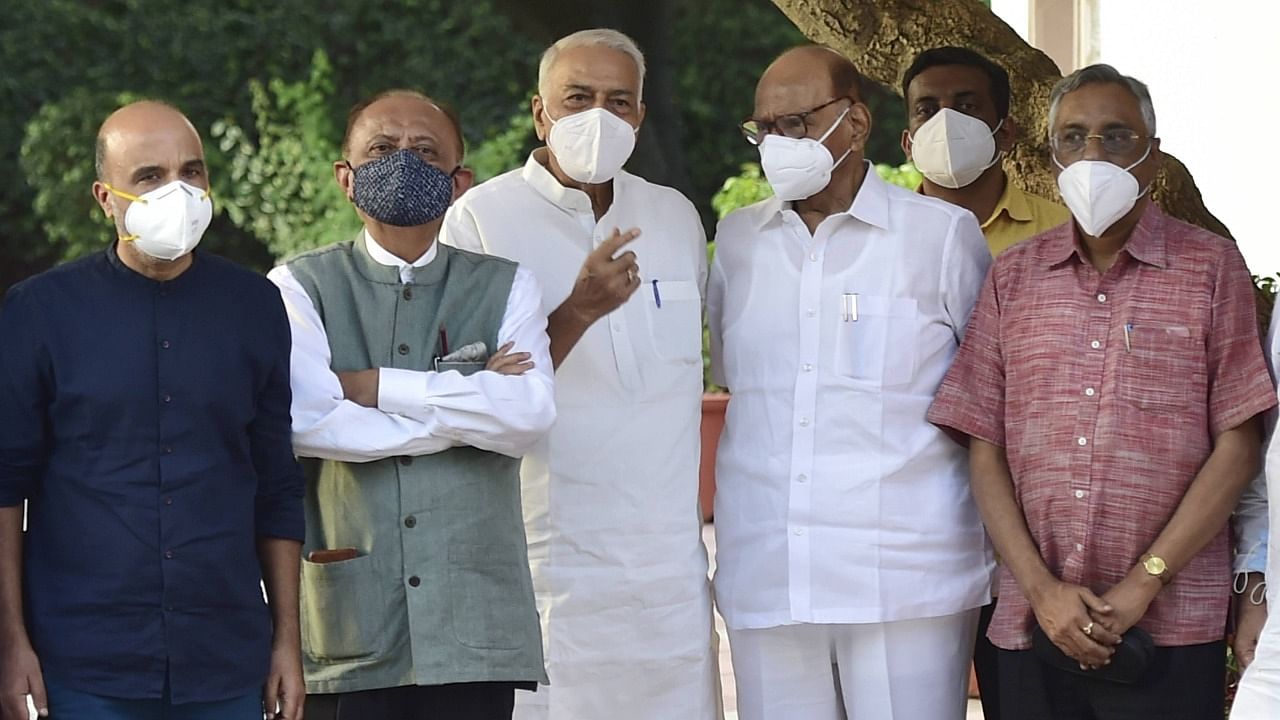
Since 1989, as no party managed to win a majority on its own till the 2014 Lok Sabha polls, regional political entities took centre-stage at the national level and influenced national politics. With regional satraps flexing their muscle, power equations changed considerably -- keeping in check the overarching tendencies of the Centre and forcing greater decentralisation, in some ways putting the Indian Union on the path of greater federalisation. But the landslide victory of the BJP in the 2014 elections and its emergence as the dominant political force across the country reversed this trend. In the last few years, especially after its re-election in 2019, the Modi government has been riding roughshod over the states and opposition parties, making it clear that it has no intention of sharing power with the states in a constitutionally fair manner. Consider the manner in which constitutionally elected governments have been toppled. Or even the vicious manner in which central probe agencies like the CBI, ED and the I-T department have been unleashed on political adversaries, especially in Opposition-ruled states.
While it was the Congress that, in its heyday, started the trend of undermining the autonomy of state governments and encroaching on their powers, the BJP, in the Modi era, has gone further in usurping the rights of the states with its highhanded approach and unilateral policymaking. The pandemic has completely laid bare the flaws in our federal democracy and strained Centre-state ties further. Over the past few months, the Modi government and the Opposition-ruled states have locked horns over several issues – from the availability of ventilator beds and oxygen cylinders to lockdown provisions and the procurement and distribution of vaccines. While the states struggled to manage their finances, the Union government did not call for a meeting of the GST Council for seven months, although it is legally mandated to meet every quarter. It was only after several chief ministers and state finance ministers wrote to the Centre that the Union finance ministry finally announced a GST Council meeting on May 28. Even the crucial decision to lower or waive off taxes on several essentials like life-saving drugs was delayed for months, partly due to hostility between the Union and state governments.
The heavy loss suffered by the BJP in Bengal despite its high-decibel campaign has breathed a fresh lease of life into non-BJP ruled states and regional parties. Emboldened by the results in Bengal and elsewhere, the chief ministers of these states have grown increasingly vocal in expressing their displeasure about the Modi government’s heavy handedness and its attempts to trample upon the rights of the state governments and centralising power and resources. Interestingly, the ostensibly non-confrontational CMs like YS Jagan Mohan Reddy and Odisha’s Naveen Patnaik have also shown signs of siding with their counterparts.
In the past few weeks, following the Assembly elections in which the regional parties performed impressively in different states, talk of a federal front of regional parties being floated to take on the BJP in 2024 has gained ground. These speculations have been heightened further after Yashwant Sinha’s Rashtriya Manch meeting at Sharad Pawar’s residence and a series of meetings between the Maratha strongman and political strategist Prashant Kishor.
The idea of regional parties coming together to take on the BJP in 2024 is a welcome move as the balance of power in the Opposition has decisively shifted away from the Congress to the regional satraps. But before India’s regional parties prepare their blueprint for 2024, they need to challenge the political centralisation project that is underway and staunchly reassert their commitment to federalism. Successive Union governments headed by national parties in their dominant days have been guilty of encroaching on the autonomy of states and of imposing Delhi’s views and rule. The BJP has been aggressively pushing forward its slogans of ‘one nation…’ and ‘double engine ki sarkar,’ which are in sync with the ideological core of the party and its vision of a unitary, heavily centralised, Hindu majoritarian conception of India.
It is imperative for state governments to resist the overarching tendencies of the Union and fight the good fight for safeguarding India’s federal ideals. In short, before forming a federal front to fight the BJP in 2024, the regional forces need to fight for federalism. The two goals are not mutually exclusive. The fight to safeguard federalism can become the rallying point for the Opposition. But apart from being the glue that can bring together disparate political parties, it can also give the proposed front greater credibility and wider acceptance by countering the charge that it is merely a ragtag coalition of overtly ambitious regional stalwarts who have nothing to offer to the electorate other than sheer anti-Modi-ism.
(The writer is a Mumbai-based freelance journalist)